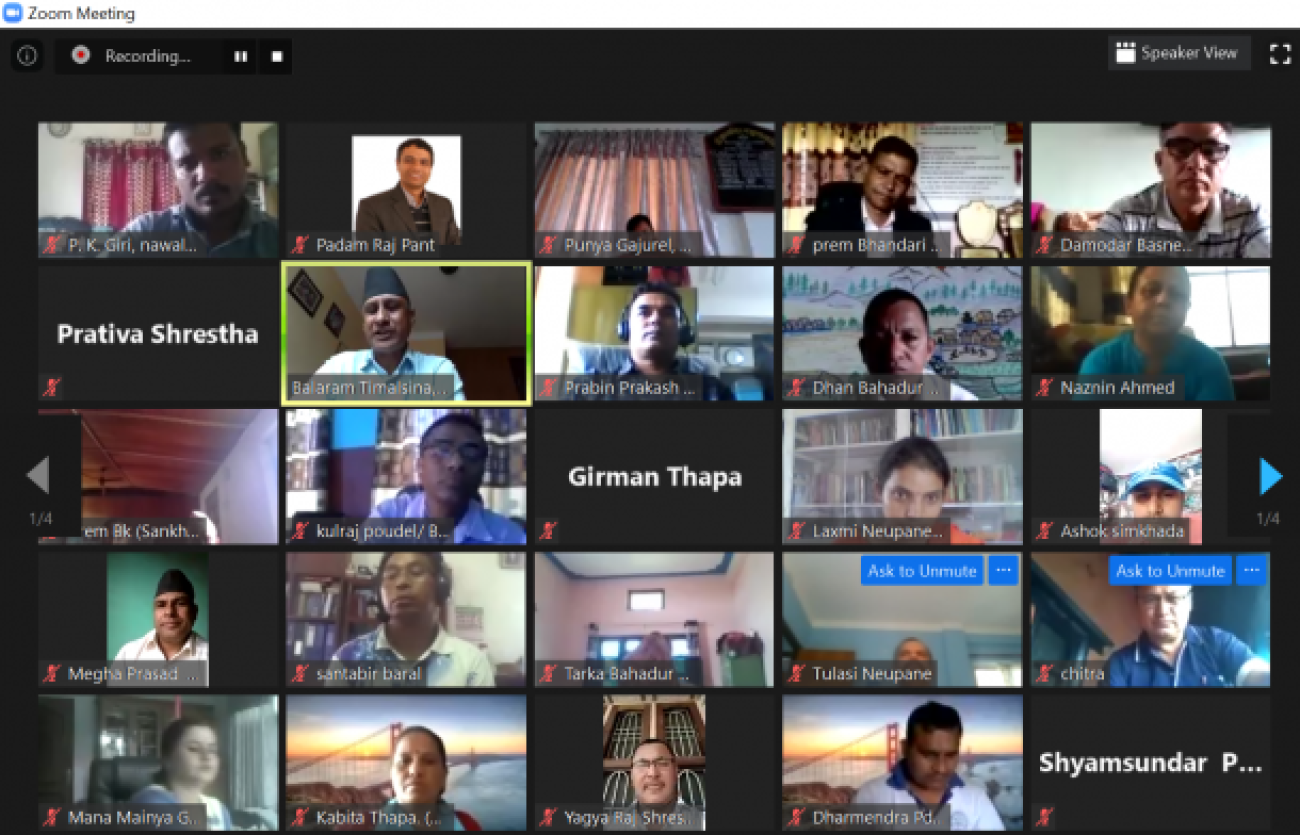Alternative teaching methods are the only option in this situation to continue students’ learning. How well a student learns using distance education depends on the facilitation of both parents and teachers. Therefore, providing skills to teachers on alternative pedagogies is of the utmost importance.
Recently, a two-phase training on alternative teaching methods was completed, attended by 155 teachers (53 women and 102 men), which guided them in how to deliver lessons through online mediums, as well as via radio and television. This was one of the several activities organized by UNESCO in collaboration with the Centre for Education and Human Resource Development in response to COVID-19.
“These alternative teaching and learning methods are useful in this situation with the COVID-19 crisis; we teachers need to be familiar with these methods so we can provide education to our pupils in any situation."
Prem Narayan Bhandari, Shree Resunga Secondary School, Gulmi
The goal of the training was assisting the teachers to continue students’ learning in the pandemic. The sessions taught the teachers to enhance their knowledge and skills using ICT tools and learning portals so that they can use various distance-teaching modes. Since the response for participation was so overwhelming, the training was given in two shifts of five days each. On the evaluation form, participants mentioned that they were motivated to learn and develop skills to help students cope with learning in this crisis. However, many students lack access to the internet, which is the main challenge for educators to connect with all their students in online mode.
“This training provided us with new pedagogical skills. However, I think the training should be provided to all, at least the secondary level teachers. At the same time, we need to provide free access to the internet and television to students so they can fully adapt to this mode of teaching,”
Shyamsundar Parajuli, Himalaya Secondary school, Banepa
A quick survey revealed that the training has had profound benefits for the participating teachers. However, they suggested that parents should also be equipped to facilitate children at home during distance education.
This activity was supported under the Capacity Development for Education (CapED) project.



